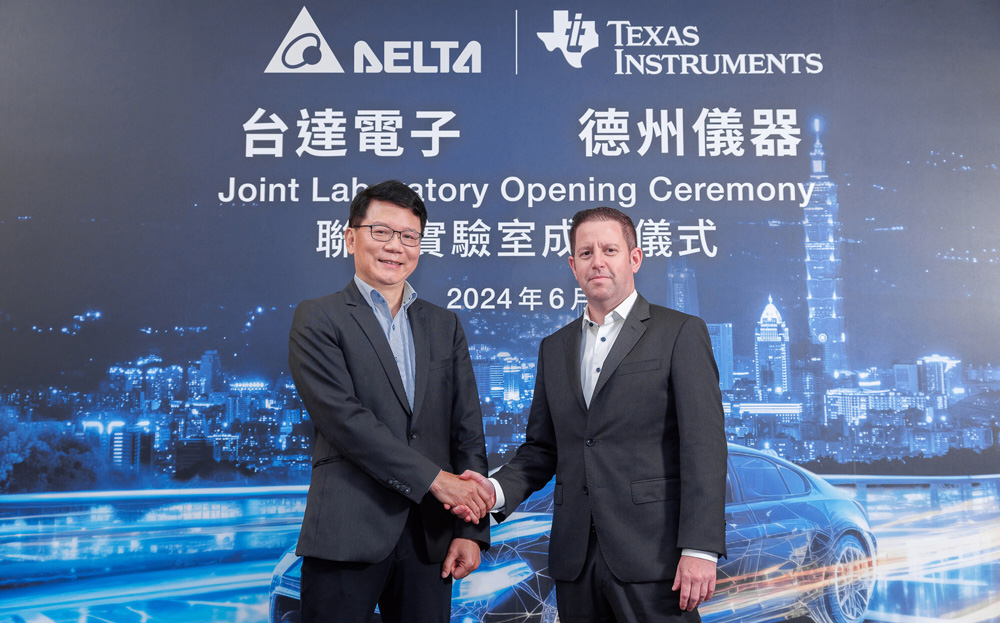Recently, Texas Instruments, a leader in the semiconductor field, and Delta Electronics, a power and energy management expert, announced that they will cooperate to jointly develop the next generation of on-board charging solutions for electric vehicles, marking a new stage in the cooperation between the two parties in the field of electric vehicle technology.
Texas Instruments, a global leader in semiconductor design and manufacturing, has earned industry recognition for its superior analog and embedded processing technologies. Delta, on the other hand, has deep technology accumulation and market influence in the fields of power management and energy management. The collaboration aims to combine the strengths of each company to bring more efficient and reliable on-board charging solutions to the electric vehicle industry.
It is reported that the cooperation will be carried out in the joint innovation laboratory in Pingzhen, Taiwan. The top R&D talents and advanced experimental equipment of both parties will be brought together here to jointly carry out the research and development of on-board charging technology. The two companies will leverage their respective expertise in power management and power transmission to accelerate the development of safer on-board charging by increasing the power density, efficiency and size of on-board charging.
Phase 1: Delta is developing a lighter, cost-effective 11kW on-board charger. The charger will feature TI's latest C2000™ real-time microcontrollers (MCUs) and TI's proprietary active electromagnetic interference (EMI) filter products. Through the partnership, the two companies aim to reduce the size of chargers by 30% while achieving power conversion efficiency of up to 95%.
Phase 2: TI and Delta will leverage the latest C2000 real-time MCUs to help automakers achieve the highest level of Automotive Safety Integrity Level (ASIL D), representing the most stringent automotive safety requirements. In addition, highly integrated automotive isolation barrier drivers will further increase the power density of on-board chargers while minimizing the overall solution size.
Phase 3: The two companies will collaborate on the development of next-generation automotive powertrain solutions, leveraging TI's more than 10 years of experience in developing and manufacturing gallium nitride (GaN) technology products to achieve higher efficiency and smaller size. Electric vehicles that charge faster and at a more affordable price.

Figure: Texas Instruments cooperates with Delta Electronics (Source: Delta Electronics)
Texas Instruments' expertise in semiconductor technology and embedded processing will provide an efficient and reliable solution for on-board charging of electric vehicles. In particular, the application of its high-performance real-time microcontrollers and third-generation semiconductor devices, such as gallium nitride GaN, will significantly improve the performance and reliability of charging systems. Delta's leading technologies in power management and energy management will provide stable and efficient power solutions for electric vehicles to ensure the safety and stability of the charging process.
The successful implementation of this cooperation will have a profound impact on the electric vehicle industry. With the rapid growth of the electric vehicle market, there is an increasing demand for efficient and reliable on-board charging technology. The collaboration between Texas Instruments and Delta Electronics is expected to meet this market demand and advance the EV industry. At the same time, the cooperation also reflects the leading position of the two companies in technological innovation and market application, and will further enhance their competitiveness in the global market.
Looking ahead, with the continuous advancement of electric vehicle technology and the growing market demand, the cooperation between Texas Instruments and Delta Electronics is expected to bring more innovations and breakthroughs to the electric vehicle industry. We look forward to seeing the next generation of on-board EV charging solutions they work together to launch and inject new impetus into the EV industry."






